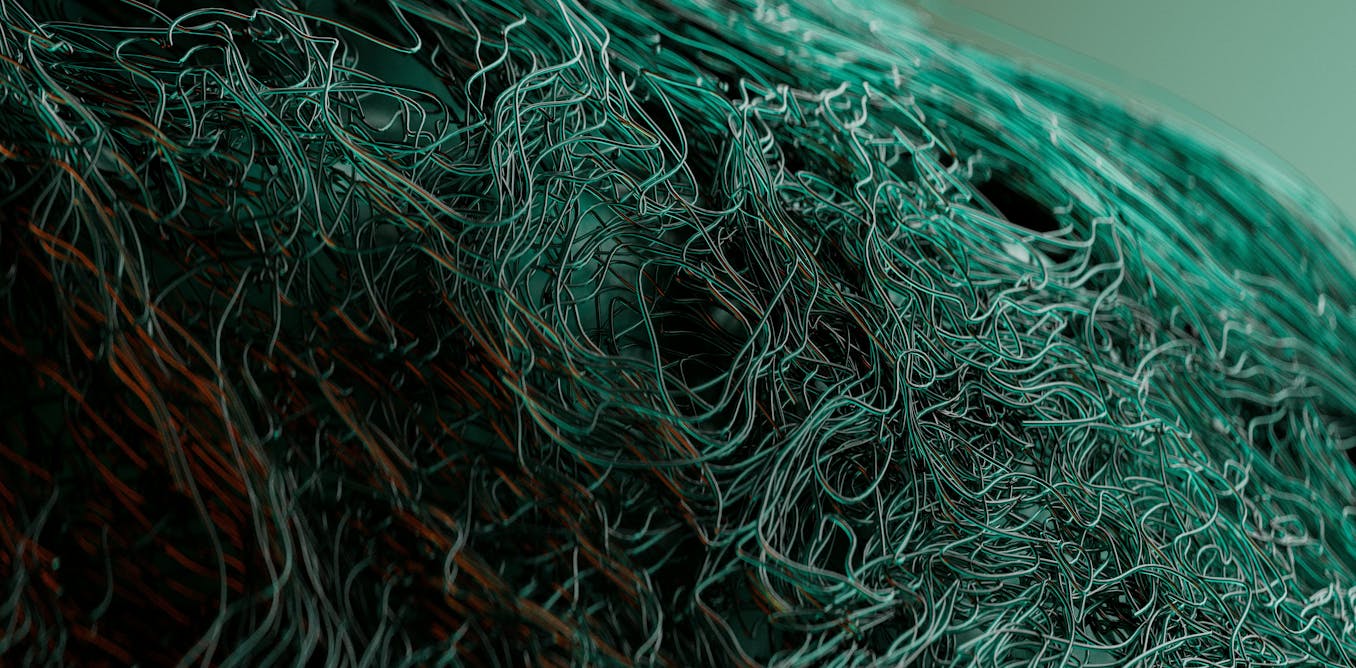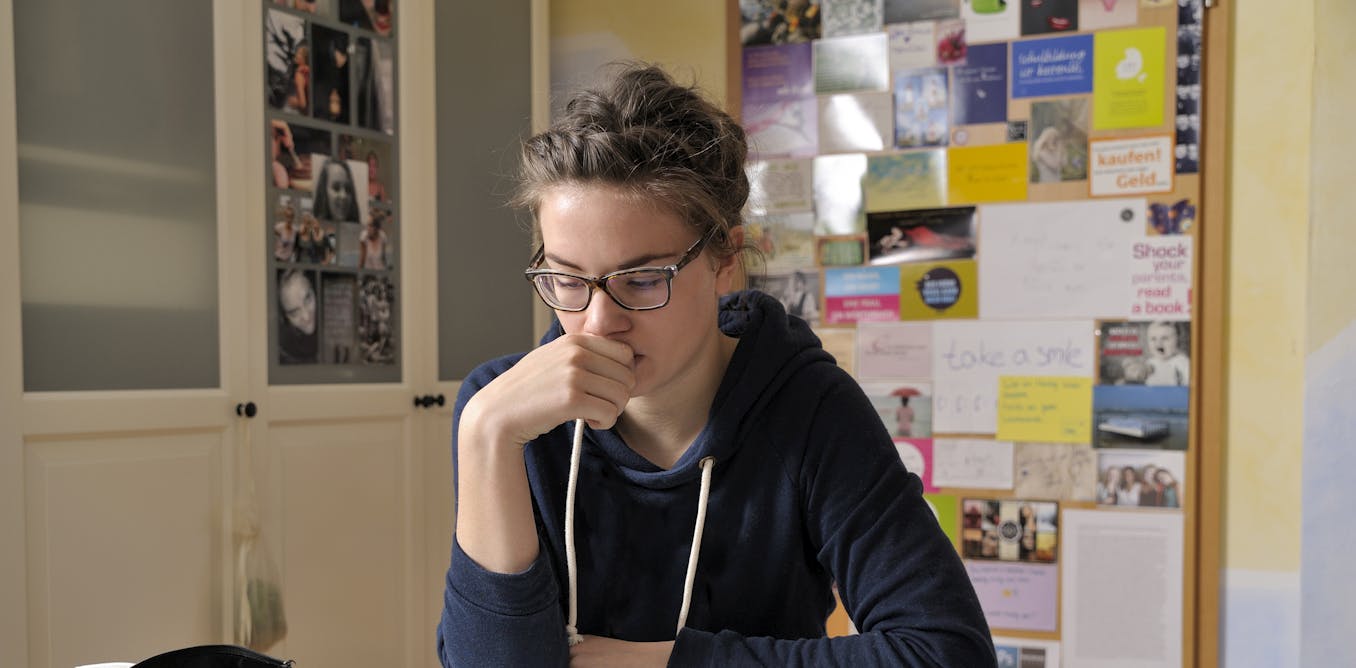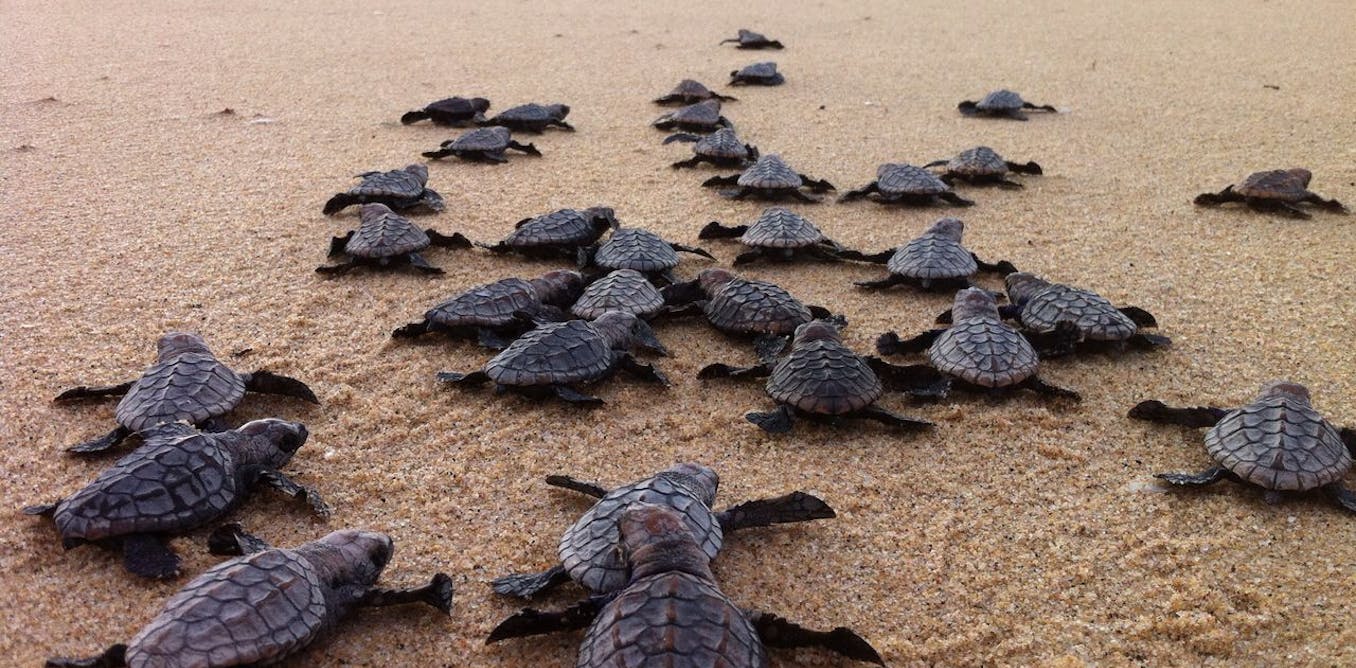What does it mean for democracy when rich citizens can change an entire city? Do the interests of big donors always serve the common good? This film delves into the world of the super-rich and takes a hard look at how much influence they exert.
In Kiel, a dispute has flared up over the Holstein stadium. Soccer patron Gerhard Lütje, founder of the CITTI trading company, wants to modernize the stadium — and turn it into a car-friendly business center at the same time. Critics find this approach environmentally unsustainable. But they are being ignored, they say. Kiel’s mayor Ulf Kämpfer (SPD) is in a tight spot: He must negotiate without scaring off financial backers.
The film team meets billionaire Klaus-Michael Kühne, one of Germany’s richest men, at his luxury hotel on Hamburg’s Alster. The 85-year-old donates generously: He supports the HSV soccer club, runs a university in Hamburg’s HafenCity, wants to build an opera house and is a sponsor of the Elbphilharmonie concert hall. But Kühne does not pay any tax in Germany. That’s because his official residence is Switzerland. “It’s a well-known fact that the state can’t do business properly,” says Kühne, who believes he can distribute his money better himself.
Lidl founder Dieter Schwarz donated a gigantic education campus to the city of Heilbronn. Still, does that mean that the interests of big donors always serve the common good? No, says the daughter of a rich family involved in the “Taxmenow” initiative: Around 50 millionaires are demanding that they finally be taxed fairly.
#documentary #dwdocumentary
______
DW Documentary (English): https://www.youtube.com/dwdocumentary
DW Documental (Spanish): https://www.youtube.com/dwdocumental
DW Documentary وثائقية دي دبليو (Arabic): https://www.youtube.com/dwdocarabia
DW Doku (German): https://www.youtube.com/dwdoku
DW Documentary हिन्दी (Hindi): https://www.youtube.com/dwdochindi
At the end of this pier stands a gift: An Asian-style tea house. A generous donation by a local millionaire to the Timmendorfer Strand municipality. “Are you pleased with this gift?” “No, absolutely not.” Municipal leaders and the millionaire donor don’t see eye-to-eye on the tea house. “If I’m gifting something to you,
You don’t have any say in how it’s done. Either it’s built the way I want it, or you can say no, you don’t want it at all.” How much power do the German super-rich wield, in their hometowns and cities? Holstein! Who decides what happens in our communities? “I never like committing myself long-term.
I always like to reserve the right to make new decisions.” “It’s a new feudalism, and not democracy as we know it.” Municipal representative Jörn Eckert was skeptical from the beginning. Was the gift-giver acting in the interest of the community? Now, his doubts have been confirmed. “The building materials and workmanship were poor,
And now the windows have to be replaced. We’re the ones left holding the bag. The original costs were around 800 Thousand Euros. I’m estimating there’ll be another 30 per cent on top – that’s over a million Euros to repair the damage now.” The back-and-forth over the tea house started about a decade ago.
At the time, we visited Jürgen Hunke, the donor, at his home. A self-described self-made man, he said he was a fan of the art of the Far East. And, he told us, he had worked for every cent of his fortune: “For 40 years I’ve been getting up at 5am.
Then I exercise for two hours, I allow myself that, I feel good about it. Then, for 35 years, I’ve treated myself to two hours of massage, every morning. There are a hundred unemployed masseurs in Lübeck and they’re happy to be able to come to me
And give me a massage for a good price.” The tea house was his big vision. It only existed as a model, back then. “What would you like to have, there?” “Just art, exhibitions, readings and the like. All in glass, and that’s all white. Gleaming over the whole of the Bay of Lübeck.”
Just like his own white houses, gleaming behind the dunes on the beach. At the time, the would-be benefactor had already poured at least a million Euros into the tea house – which is named after his publishing company. Critics slammed it, as a form of advertisement. But Hunke was dismissive.
“People with no argument say this sort of thing. I think ‘Mikado’ is better than naming it ‘Jürgen Hunke.’ The important thing is, it’s being built.” He got his way. Today, the tea house shines over the Bay of Lübeck, just like he wanted. As far as the follow-up costs are concerned,
Hunke rejects responsibility – and accuses his critics of slander. For the local council, the building is a permanent headache. “Has the council learned its lesson?” “Yes, absolutely.” All of Jürgen Hunke’s subsequent proposals have been gracefully rejected by the municipality. Donations are a good thing, generally speaking. But who decides where a tea house,
University or opera house should be built? Democratic bodies, or millionaires? Cash from the wealthy can end up making waves. We travel to Kiel, where a soccer patron’s big plans got too big in the end. This is the story of the Holstein Stadium. Home to local soccer club Holstein Kiel. Holstein!
Wealthy Holstein fan Gerhard Lütje wanted to build a new stadium. The 81-year-old entrepreneur’s motto was “no half measures”. The new arena: car-friendly, with an event- and congress-center, sports store, betting office and five-story parking lot. Garden allotments and a sports hall would have to go. Does Gerhard Lütje know how his plans might affect
The people expected to make way for them? We can’t say: He turned down our request for an interview. As one of Kiel’s largest entrepreneurs, he exerts a tangible influence on the state capital. Locals know him as the founder of Citti-Park malls on the outskirts of the city. Car-friendly shopping, large parking lots –
That’s his thing. He used the same architects for the stadium design. On match days, residential areas near the stadium are already jammed with fan buses and cars. People worry that when the congress center opens there’ll be even more traffic. Earlier this year, neighboring garden allotments were levelled
To make way for the new access road. “Watch out you don’t slip.” Residents and environmental activists founded a civil initiative, to fight back. “There’s a sense that everything’s been decided, whether or not we register our opposition. It feels like we’re not being listened to, at all.”
“It’s not that we’re against the expansion of the stadium per se but the ddimensions shouldn’t be so extreme. The plans include a congress center, which is just completely out of place, here. And a huge road, for a thousand cars. It’s just too much.” “And in the case of Holstein in particular
There’s another factor at play, with the investor, I think this is some sort of vanity project, that he wants to establish a kind of memorial to himself here.” “Whenever Herr Lütje presents his wish list, it gets ticked off. No one seems interested in publicizing alternate suggestions.”
These people are calling for a complete rethink of the stadium expansion. In an era of climate change, it could smaller, car-free. Perhaps even made of wood. Gerhard Lütje’s plan looked very different. And required 30 million Euros of taxpayers’ money. Aloys Altmann from the Taxpayers’ Association doesn’t approve.
“Herr Lütje is a generous supporter of the club. It’s very altruistic. But it’s not only altruistic.” “What’s not altruistic about it?” “Well, it’s a way for him to buff up his image. So that he can earn money with the CITTI brand. But he’s not contributing all that much to the overall project.
The investor wants his plans excuted. But if the city and the state don’t play along with plans of this scale, then the plans might need to be made more modest. That’s not my job, to say. I’m the guardian of taxpayers’ money, and it’s my job to say: be careful.
You can’t throw cash around like there’s no tomorrow. Professional soccer is awash with cash, and the earnings aren’t bad either. We’ve got another club in Kiel, they’re the Bayern Munich of handball. They don’t get any public money. I approve of that. Public money belongs in school sports and popular sports,
Not in professional sports.” How does the club see it? The German Football League or DFL earns around 1 point 1 billion Euros from TV rights, alone. Players and managers earn millions. So how come there’s no money for the expansion of a stadium? On the day we’re filming,
The first rumors emerge that Gerhard Lütje wants to pull out due to skyrocketing construction costs. Holstein club president Steffen Schneekloth is on edge. “The fact is that if the stadium expansion is to go ahead, it’ll require 30 million Euros of taxpayers’ money. Why do you need the money?
If you’re getting six million in TV rights every year and doing very well…” “I can’t answer that. You’re mixing everything up and you’ve absolutely no… you haven’t done your homework. I’ve got nothing to say.” He cuts the interview short. “Yes.” The media spokesperson intervenes. …but doesn’t want to speak to us on camera.
Questions about money aren’t welcome, here. Evidently, questioning the idea of using tax money for soccer is viewed as outrageous. Our cameraman tries again. “Who’s making money from it now? The investor or the club?” “So if you’re involved in soccer…I can’t earn any money with soccer.” Okay, you can’t earn any money with soccer.”
“Yes.” “Yes, that’s interesting. No one earns money? “Yeah, I’ll happily explain it to you.” “Please do explain. So with soccer you…?” “But not in front of the camera.” “Why not?” “I can’t.” “But why can’t…I don’t understand. Of course you can earn money with soccer.” “The question your colleague asked was, who?”
“Who will benefit from the expansion, if it goes ahead as planned, in the ideal scenario.” “Yes. Of course the club benefits, as I just said, from a much-needed new stadium with modern infrastructure. Improving our national standing also places national focus on Kiel – which is most definitely a contributing factor in boosting
The fortunes of the state capital.” “Okay. So, when investors put in so much money, are they just passionate about sports?” “You could say that.” The day we have an appointment scheduled at City Hall, Gerhard Lütje’s expansion plans are still on track. The development is about to be approved by the city’s Mayor.
Ulf Kämpfer is aware of residents’ complaints regarding traffic and environmental damage. What we want to know – to what extent can a patron put pressure on a city where funds are tight? “So how does it work? What goes on behind the scenes?
Do you say, ‘perhaps we can put in 20 million in tax money. Then he says: no, that’s not enough, we need 30. Is that how it works?” “Well, I’m speaking in general terms. Of course…” “Oh, please, be specific!” “No, no! It’s always the same procedure. Of course, there’s always a tussle.
No one can force the city to plan a stadium just by offering to develop and subsidize it. Conversely, the city can’t force anyone to spend millions on building a stadium. In other words, you need the wrangling to agree on a joint solution where both sides can say:
Yes, this is how the project can work.” “Critics say the city is giving too much.” “For me, I’m happy if a stadium corporation, which is likely to be made up of a variety of different partners, relieves us of this burden,
If I want to make all the decisions, then I have to build it myself. And then I have to tell the people of Kiel, the city won’t manage with the 10 million we’re giving now. We’d have to spend much, more more. Then we can build the stadium exactly the way we want it.
But that also means the taxpayer has to spend much, much more. And we’d bear the financial risk.” A day later, the news hits: Gerhard Lütje has put his plans on ice, due to spiraling construction costs. But his office also tells us that the development scheme has been overwhelmingly approved, by the city.
Who’s picking up the tab now? No one knows. Success…or failure – patrons often hold the cards. What motivates them? The city state of Hamburg has Germany’s highest concentration of millionaires. Today we’re meeting one of the country’s richest men: Klaus-Michael Kühne, Hapag Lloyd’s major shareholder. The shipping company is celebrating its 175th birthday
At Hamburg’s City Hall. For Hamburg’s high society, patronage is de rigueur. Kühne’s own charitable foundation distributes some 30 million Swiss francs every year. The billionaire agrees to give us an interview. We meet along the Alster river, in a luxury hotel that he owns. Whenever he visits his native city, he stays here.
His father transferred the German family’s main residence to Switzerland, a tax haven, long ago. The Kühnes haven’t paid taxes in Germany since. Klaus-Michael Kühne keeps us waiting. Two hours. Leaving us ample time to think about his foundation. The 30 million Swiss francs are channeled into projects that reflect his interests and inclinations.
He owes his fortune to logistics. In Hamburg’s HafenCity, he set up the Kühne Logistics University, dedicated to educating professionals in the sector. A die-hard soccer fan, Kühne sponsors his home team, Hamburger SV. The Elbphilharmonie benefits from his love of classical music. Critical reports about Kühne do surface,
Most recently concerning his company Kühne + Nagel’s stonewalling over its Nazi-era activities. We’re only granted an interview because he wants to talk to us about his patronage activities. “Sorry about the delay.” “You could just enjoy your retirement, but you’re still very active. Why?” “Because I have a lot of interests.
It keeps me young physically, but first and foremost. And at the same time it’s a duty, so to speak, if you’ve been successful, then you should allow others to share in that success. I think it’s a very healthy way to invest money instead of just paying taxes or spending the money
On unnecessary things.” A major beneficiary of the Kühne empire: the Elbphilharmonie. The billionaire sponsors the world-famous concert hall and donated over a million Euros towards its construction. Anyone who’s anyone in Hamburg donates money to the “Elphi”. On the wall listing the names of donors, the Swiss national Kühne keeps company
With other illustrious Hamburg families. “The names along the top are mostly individuals and organizations who donated more than a million. Some private donors and companies prefer to remain anonymous. We’ve got some very well-known companies supporting us, but it’s not publicized.” The Kühne Foundation is among the six main sponsors. His name – unmissable.
Also part of the agreement: the “Christine and Klaus-Michael Kühne Skylounge”. He can entertain friends or business partners on the exclusive roof terrace. “For sure, no one gives money like this for nothing. He’s doing it for a reason. It could be his great love of music. It could also be status.
“Does he decide what’s in the program?” “’Decide,’ that’s going too far, I’d say. He has a firm opinion. He doesn’t like everything that happens, here. He has very specific preferences.” “You’re a major donor. And if you say ‘contemporary music isn’t my thing,
I don’t really like it,’ do you think that makes them nervous?” “No, no, no. Unless I’d stop the sponsorship, of course. But I won’t go that far. I will give my opinion. I’m always very, very open and straightforward.” “But that’s a possibility? You might say: I don’t like it, I quit.”
“If something really displeased me, if the nature of the performances there were to change completely then it’s not out of the question. I don’t like to make long-term commitments. I’ve just reconfirmed this music festival for the next three years, but that’s the longest period I’ll commit to.
I always like to reserve the right to make new decisions.” Do good and exert influence – Klaus-Michael Kühne regularly surprises Hamburg with new cash gifts. But not all of them are gratefully received: Fans use salty language to condemn a planned 120 million euro donation.
Another unwanted gift: his recent proposal for a new opera house. The Lord Mayor said no, thanks. The city already has one. Kühne has a lot of money to give away. That’s not surprising: Hapag-Lloyd’s profits are huge: some six point two billion Euros in 2021 alone. Klaus-Michael Kühne collected around one point
Nine billion Euros in dividends. Due to a special regulation for shipping companies, known as the tonnage tax, company profits were taxed at a rate of just zero point 65 per cent. “Critics say it’s an obscenely small amount going into the tax coffers.” “Given Hapag-Lloyd’s current earnings, that’s absolutely right.”
“So you have a problem with these earnings?” “Yes, correct, it’s too much.” “It’s too much?” “Much too much. I didn’t come up with the idea. When I first realized how this tonnage tax is calculated, I was surprised. It’s an anachronism since it doesn’t exist in any other industry,
To be honest I find it rather strange.” The tonnage tax is the purview of the Hamburg Senate. Deputies recently voted against abolishing these tax benefits for shipping companies. The motion was brought by Norbert Hackbusch, a representative of the ‘Left Party’ in Hamburg. The leftwing politician is critical of the shipping magnate.
“Well, his patriotic duty would be to actually pay taxes in Hamburg, if he really feels like a citizen of Hamburg. But he doesn’t.” “In our interview he said he likes to give something back to society. He’s doing good things. Why aren’t you happy about that?”
“Because he’s behaving like the lord of the manor. He’s acquired his wealth, for reasons we could discuss at length and he doesn’t even have the grace to say ‘I’ll just give it to you, do with it what you will, because I’ve received too much’ – no, he wants to call the shots.
So he’s always trying to dictate his tastes. That’s a new feudalism – not democracy as we know it.” The private wealth of the rich is growing steadily. And more of more of them are putting their cash in foundations. Charitable foundations don’t pay any tax.
“Critics say the money would be better off in the tax coffers than in foundations; that it’s better if the state and democratic institutions get to decide how the money is spent, rather than individuals. What’s your view?” “Well, I don’t see it that way at all. Because it’s well-known that the state
Isn’t capable of running itself properly. Firstly, a great deal is suffocated by bureaucracy, secondly state organizations may not act and think commercially. In my view, the private sector should be given plenty of scope to ensure that things work much better.” The billionaire thinks the state’s role should be diminished. Others disagree.
We’re on our way to Mainz, to a political youth festival focusing on tax justice. Stefanie Bremer comes from a rich family. She uses games to explain that inheritance is a matter of luck. And that wealthy people like herself don’t pay enough in taxes. Along with other millionaires,
She’s involved in the initiative “taxmenow” – not something you hear very often. “It’s not as though by giving something away I’d be left with nothing. Not at all. But if I give something away, then the state can invest a little more. In environmental protection, in functioning education and health systems, and so on.”
Stefanie Bremer could just lead a quiet and comfortable life. “I’m wondering, why are you doing this?” “Unfortunately we’ve seen that when wealthy people who benefit from these tax advantages speak out against them, people sit up and listen. When we say, ‘I benefit but I’m nevertheless in favor of change,
So that everyone fares better, not just me.’ Other people who aren’t rich but say the same thing are often accused of being envious of the wealthy. And I can’t be accused of that. Many people don’t want charity We can’t try to solve social problems with a trickle of cash
Or a bandaid in the form of philanthropy. And yes, the state isn’t perfect at distribution, but I think it does a very competent job of fulfilling many tasks.” Together with the Tax Justice Network, “taxmenow” calculated how much additional revenue could flow into public coffers if higher taxes were levied
On income from the super-rich. Looking at inheritance, capital, assets, and other resources, the tax activists arrived at an annual figure of 80 Billion Euros. “The good thing is that in Germany, rich people are in the minority. And in a democracy, if the majority decides on something,
The minority has to go along with it.” In the German city of Heilbronn, one man’s shadow looms particularly large. Currently the wealthiest person in Germany, local man Dieter Schwarz heads up the Schwarz Group, which owns the discount supermarket chains Lidl and Kaufland. “Do you know the name Dieter Schwarz?”
“Yes of course, everyone knows him.” “That’s the guy from Kaufland and Lidl.” “But not personally, you don’t see him about.” “No one’s allowed to publish a photo of him, only when he dies.” “Does he influence life in the city?” “Sure, he owns pretty much everything here.” “What do you think of that?”
“I’m pleased he invests his money here. He could move it to Switzerland.” “We’re lucky to have Herr Schwarz. If we didn’t have him, the city center wouldn’t look so good.” “He’s a role model.” “For you as well?” “Yeah, for me too.” “Although it’s good that he does so much, it’s a double-edged sword.
We also need room for people who maybe don’t have money, but do have great ideas. That’s not the case.” Dieter Schwarz, omnipresent yet invisible, doesn’t give interviews. No one here knows his face, but everyone is familiar with his interests. Namely: education and research. He even founded an educational campus here,
Where 16 buildings house five institutions for higher education. The main focus is on trade and business. Everyone in Heilbronn knows ‘Experimenta’ with Lidl’s distinctive “i”. Critics of the local benefactor are too afraid to go on camera. They say Schwarz wields too much power, that his dealings with city authorities are too opaque.
Hard to grasp – just like his company structure: The Lidl company’s structure is complex. It includes seven foundations and four non-profit, limited-liability enterprises. Some profits might be channeled in this direction – tax-free and at the disposal of the generous son of Heilbronn, Dieter Schwarz. The billionaire’s recent coup was impressive:
Heilbronn won the contract for Germany’s new Artificial Intelligence Innovation Park. The five locations in the competition included Freiburg, Karlsruhe and Stuttgart. So why Heilbronn? That’s a question that’s bothering the Free Democratic Party parliamentarian – Hans Dieter Scheerer. “The ministry of economic affairs indicated that Heilbronn
Won the contract because the park’ll be in a spot where… ’there’s a campus’ And that the financing is secured, namely that the Dieter Schwarz Foundation has pledged to make up for the shortfall in funds. So in a nutshell, a cynic might say it was bought.” “….that conclusion could be drawn.”
“Who bought what from whom?” “Dieter Schwarz said: I’ll finance it for you. And the committee said: If we’ve got someone who’s paying for it, wonderful. And they ignored any other options.” “You weren’t able to evaluate the criteria used?” “No, not at all. I checked again this afternoon.
The minister’s response is that it’s confidential and she won’t tell us. We’d simply like to see the criteria, the scaling that led to this decision. And I think we owe it to our citizens. Even if it’s just one Euro of taxpayer’s money being spent, I believe we’re accountable.”
The ministry of economic affairs insists that a “high-caliber” committee of experts made its decision in a “transparent competitive process”. But details of the financing are secret. Confidentiality is important, the Dieter Schwarz Foundation informs us. We’re at City Hall for an appointment with the mayor of Heilbronn. Surprisingly, he cancels at the last minute
And sends his media spokesperson instead. But it’s soon clear she’s not going to tell us anything substantial. So, we insist on our pre-arranged interview with the mayor. And suddenly, he does have time for us. Dieter Schwarz supported Mayor Harry Mergel in his election campaign. There are rumors that the two men are friends,
And that they meet at the Lions Club. It feels as if we’ve entered a murky world. “People say, there’s so much secrecy, and Dieter Schwarz’s relationship with politics is such a close one… and so on. Can you understand how that looks, to people on the outside?” “Certainly. We’re an open book.
You’re doing your job and seeing if there’s anything that needs to be uncovered and shared with the general public. And stories like this, they arise. I don’t think there’s anything you can do about that. And as I said, we’ve already had a certain amount of experience there and we can live with that.”
“Then I’ll just ask the question directly: What’s the nature of your connection with Dieter Schwarz? What is your relationship? “We have a good relationship.” “Are you friends? Have you known each other long? You’re both from Heilbronn.” “If you have a good relationship with someone
And you want to keep it that way, then you don’t say too much about it.” “So what will happen when Dieter Schwarz dies? He’s pretty old.” “He’s in such good health. I hope he’s got many good years ahead of him.” “I wholeheartedly wish him the same.
But still, he must be well over 80. What happens when a donor like him can’t be active anymore?” “I’m sure he’s made all the necessary arrangements.” “So that the tap isn’t suddenly turned off.” “That too.” “You hope, or you know?” “Now, I’m like you. Now I just believe.” “You believe that.” “Yes.”
It was worth a shot. We decide to try another tack, and meet with someone from the transparency initiative ‘Frag den Staat’, or ‘Ask the State’. Max Kronmüller and his colleagues approach authorities with specific enquiries, citing the Freedom of Information Act. Often, they’re able to break through officialdom’s silence. But in Heilbronn,
Max Kronmüller encountered some unusual hurdles right away. “State-level fee regulations stipulate enquiries can cost a maximum of 500 Euros. Heilbronn hasn’t capped the rate at 500 Euros, but at 10 thousand. Slight difference.” “Interesting. So what does that mean?” “It’s disastrous, of course.” “No one can afford that.” “Precisely, no one can afford it.
So it’s not used. Effectively nullifying the law.” The city of Heilbronn informs us that state legislation allows for these maximum fees. Today, Max Kronmüller looks over the minutes of the municipal council meetings. The city sold the land for the educational campus to the Dieter Schwarz Foundation. Why?
The mayor told us everything was transparent, and recorded in the minutes. Max Kronmüller disagrees. “The truly relevant points, we can’t see them. I want to know how projects come about and how they’re realized. At what cost, what are the contributions from city and foundation, which opinions are considered, is there any citizen involvement?
All questions these documents can’t answer.” Meanwhile, we’ve made seven separate enquiries, to the city, the district authority and the state. With no success. One of the reasons given: The Dieter Schwarz Foundation hasn’t agreed to share the information. We look for a donor who’ll give us a peek behind the scenes –
And find him in Lübeck. The town has 122 foundations. Michael Haukohl started one of them. This year, he donated some 400 thousand Euros to local schools. Again. He likes to check in, in person. “Hello, can we come in?” He donated a five-day team building trip to this class.
“How was the food and accommodation?” “It was actually pretty ok.” “We had to build a boat ourselves and survive on it.” “Any other comments?” “I thought it was good that when one person struggled to do something, the class motivated them.” “We used to have more disagreements.
But because each of us interacted a little with people we don’t normally talk to, it helped us to get along better.” “I’m interacting a lot more with the whole class now.” “Super. That’s excellent. I’m pleased you’ve done it and pleased to hear your positive reports. Thanks a lot!”
“Thanks very much! Frau Herzmann, thank you!” “Bye!” “It’s real, it’s direct, you can ask questions. It’s ideal.” “Why do you like doing it this way?” “We set up the foundation because we don’t have children, and I’d say we have quite a few, now. We live for this. That’s at the heart of it.
Sitting at a desk, getting an application and saying ‘yes we’ll do it’ – that’s no fun. Principal Jörg Haltermann can count himself lucky. Thanks to benefactor Haukohl, his school has a lot to offer. Anti-bullying programs, conflict mediators, a photography project, school trips. Foundations finance more than 30 projects here.
“We can be happy, whether it’s in Lübeck, Kiel or Neumünster, if there are donors or foundations that support schools when budgets are squeezed. Actually, it would be fairer if we received funding from the central government. If all schools were equally funded.”
“So where you go to school ends up being a bit of a lottery.” “Precisely!” Michael Haukohl personally selects the schools his foundation works with. The chemistry between donor and school leadership team has to be right, he says. The school’s annual budget planning meeting is taking place today.
The city has come to rely on the foundation’s generosity. “The way it’s worked for years now is that we receive a proposal from you at the end of the school year, about the projects you’d like to do in the next school year. To improve your students’ social skills.”
“Let’s start with the Marburg Concentration Training. We’d really like to carry on with that, we offered it last year already.” “Exactly, we did it in our school last year, and it worked out well.” “The new Year 5 class trip – they want to swim is that something you’d help with?
With a focus on swimming, and the kids who haven’t learned yet.” “We’re open to that idea, my wife in particular. Everyone in Lübeck needs to be able to swim, with all the water here. I’ll go out on a limb, for my management board. You’ll have to back me up.
But my wife’s on my side.” A total of 14 projects are discussed at the meeting. Some costs have gone up. Now, it’s time to do the math. Is the benefactor on board? “Now we’ve got to get down to the nitty-gritty, Mr. Haukohl.” “So, that’s three, four, plus two, plus another nine,
I’m just adding it up roughly, and another two point two, right? So that makes 20 thousand. What did we do last year?” “Sixteen thousand.” “That’s more than a schnapps.” “The parents’ association contributed a healthy amount last time, about three thousand Euros.” “If we agree on a figure, the school association will agree.”
“OK, that puts us in the same ballpark as last year, so we can sign off on that.” “Fantastic.” “Brilliant, we can keep the entire wish list.” “What a relief.” “That’s amazing.” “I noticed everyone fell a bit silent just then, waiting… is he going to say yes or no?” “Yes.”
“Whether the cash flows or not depends on his vote. Doesn’t that seem old-fashioned to you, like something out of another century?” “Well I have to say I’m very grateful that this is the case. Other specialists will have much more to say about the free market economy,
About taxpayers’ money flowing into the public purse. But I think it’s difficult to strike a good balance between what’s needed and what ordinary citizens can raise themselves. And we’re basically thankful that there are people who say: I’m going to donate my company profits to good causes.” Michael Haukohl inherited a real estate empire.
Selling it made him rich. More than 20 years ago, he and his wife decided to put their money into a foundation. In the years since, philanthropic boundaries have become increasingly blurred: what should the state be paying for? And where should foundations be stepping in?
“It used to be, foundations took the view that they shouldn’t be funding anything that was the job of the state. But that changed 17 years ago, when the Possehl Foundation funded an upgrade of the heating systems in Lübeck schools. And everyone said: that’s unbelievable.
The state isn’t in a position to heat schools properly? That’s not something a foundation should be doing… We don’t say things like that anymore.” “Do you think that’s right?” “To a certain extent, no. We’re sometimes appalled that the state doesn’t take certain things into its own hands.” “For example, to this day,
It still hasn’t got a handle on digitalization. There isn’t Wi-Fi everywhere – and the list goes on.” “But we also say: OK, if we can help, we’ll do it. Things the state just can’t manage. The schoolkids need tablets NOW, not in three months’ time.”
“I actually think it’s a good thing to have a certain amount of competition between state and private funding. If it’s something completely new and the state isn’t willing to assume responsibility, foundations can try it out.” Their donations do good. But even the Haukohls can’t escape the patrons’ dilemma.
In the end, deciding who receives help – and who goes empty-handed – is entirely up to them.
Video “How much influence do the super rich have? | DW Documentary” was uploaded on 01/04/2024 by DW Documentary Youtube channel.


































